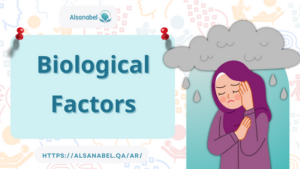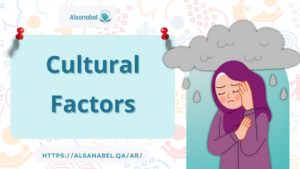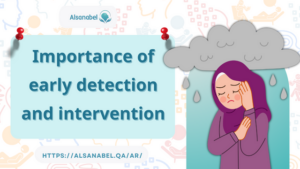Depression in Women Causes and Risk Factors 2024
- Category Depression in Women
Depression in women is a mental health disorder characterized by persistent feelings of sadness, hopelessness, and loss of interest or pleasure in activities. Women may also experience symptoms such as changes in appetite, sleep disturbances, fatigue, difficulty concentrating, irritability, and physical complaints. It is important to recognize these symptoms and seek appropriate treatment to alleviate the impact of depression on daily functioning and overall well-being.
Understanding the causes and risk factors of depression in women is crucial for several reasons:
- Firstly, it helps identify individuals who may be at a higher risk and allows for targeted interventions and support. S
- econdly, understanding the root causes can aid in the development of effective treatment strategies.
- Lastly, by raising awareness about these factors, we can reduce stigma and promote mental health education and support services such as those available in Mental Health Qatar.
Biological Factors
Biological factors play a significant role in the development of depression in women. Hormonal changes, such as those that occur during puberty, pregnancy, and menopause, can contribute to mood fluctuations and increase the risk of depression.

Additionally, research suggests that there may be a genetic predisposition to depression in women, with certain genes influencing susceptibility. Understanding and addressing these biological factors is crucial for effective treatment and support for women experiencing depression.
Hormonal changes and imbalances
Hormonal changes and imbalances can contribute to the development of depression in women. Fluctuations in hormones, such as those that occur during puberty, pregnancy, and menopause, can affect neurotransmitters and mood regulation.
Additionally, conditions like polycystic ovary syndrome (PCOS) or thyroid disorders may also increase the risk of depression due to hormonal imbalances. It is important for women experiencing these hormonal changes to seek support from mental health Qatar professionals who can provide appropriate treatment and management strategies.
Genetic predisposition to depression in women
Genetic predisposition plays a significant role in the development of depression in women. Studies have shown that individuals with a family history of depression are more likely to experience the condition themselves. Certain gene variants, such as those related to serotonin and dopamine regulation, may increase susceptibility to depression. Understanding this genetic component can help Psychiatrists in Qatar tailor treatment approaches and provide targeted support for women at higher risk.
Psychological Factors
Psychological factors can significantly contribute to depression in women. Negative life events and traumatic experiences, such as the loss of a loved one or a history of abuse, can increase the risk of developing depression. High levels of stress and chronic illness can also have a negative impact on mental health. It is important to address these psychological factors and provide appropriate support to help women cope with and overcome depression.
Negative life events and trauma
Negative life events and trauma are significant psychological factors that can contribute to depression in women. Experiencing the loss of a loved one, going through a divorce, or facing financial difficulties can be deeply distressing. Moreover, women who have a history of abuse or traumatic experiences may be more susceptible to developing depression.
These events can disrupt an individual’s sense of safety and security, leading to feelings of sadness, hopelessness, and despair. It is crucial to provide support and therapeutic interventions for women who have experienced negative life events or trauma to help them cope with their emotions and prevent the onset or worsening of depression.
High levels of stress and chronic illness
High levels of stress and chronic illness can contribute to depression in women. The demands of work, family, and personal responsibilities can create overwhelming stress, leading to feelings of sadness and hopelessness. Additionally, women with chronic illnesses such as diabetes or autoimmune disorders may experience physical and emotional strain, increasing their vulnerability to depression. Managing stress and seeking appropriate medical treatment in Mental hospital in Qatar are vital in preventing and managing depression in women.
Social Factors
Socioeconomic status and inequality can significantly impact a woman’s risk of depression. Women facing financial difficulties or living in disadvantaged communities may experience additional stressors that contribute to their mental health struggles. Similarly, a lack of social support and feelings of loneliness can exacerbate feelings of depression in women. Understanding and addressing these social factors is crucial in providing holistic care for women experiencing depression.
Socioeconomic status and inequality
Socioeconomic status and inequality significantly impact a woman’s risk of depression. Women facing financial difficulties or living in disadvantaged communities may experience additional stressors that contribute to their mental health struggles. The lack of access to resources, opportunities, and quality healthcare can further exacerbate the risk. Addressing socioeconomic disparities is crucial in providing holistic care for women experiencing depression.
Lack of social support and loneliness
Lack of social support and loneliness can contribute to depression in women. A lack of supportive relationships and a sense of isolation can lead to feelings of sadness and despair. Women who lack social connections may not have people to turn to for emotional support, increasing their vulnerability to depression. Seeking out social support networks and building healthy relationships can be essential in combating depression.
Cultural Factors
Cultural factors can also contribute to depression in women. Cultural expectations and gender roles can place additional pressure on women, leading to feelings of inadequacy or self-doubt. Discrimination and stigma against women in certain cultures can also have a negative impact on mental health Qatar. Understanding and challenging these cultural factors is important in addressing and preventing depression in women.

Cultural expectations and gender roles
Cultural expectations and gender roles can significantly impact the mental health of women. Societal norms and pressures to conform to traditional gender roles may lead to feelings of inadequacy or self-doubt, contributing to Depression in Women. In some cultures, women are expected to prioritize family obligations over personal aspirations, which can create stress and dissatisfaction. Challenging these cultural expectations is crucial in promoting women’s mental well-being.
Discrimination and stigma
Discrimination and stigma can have a profound impact on the mental health of women. Experiencing discrimination based on gender, race, or other factors can lead to feelings of worthlessness and contribute to depression. Stigma surrounding mental health may prevent women from seeking help and support, exacerbating their symptoms. Addressing discrimination and reducing stigma is vital in promoting the well-being of women with depression.
Relationship Factors
Unhealthy relationships and domestic violence can greatly contribute to depression in women. Being in a toxic or abusive relationship can erode one’s self-esteem and intensify feelings of sadness and hopelessness. Additionally, a lack of intimacy and emotional support in relationships can leave women feeling isolated and disconnected, further exacerbating their depressive symptoms. It is important for women to seek help and support from Psychiatrists in Qatar if they are experiencing these relationship factors.
Unhealthy relationships and domestic violence
Unhealthy relationships and domestic violence can significantly contribute to depression in women. Being in a toxic or abusive relationship can erode their self-esteem and intensify feelings of sadness and hopelessness. The constant fear and distress caused by domestic violence further exacerbate their depressive symptoms. It is crucial for women to seek help and support if they are experiencing these relationship factors.
Lack of intimacy and emotional support
Lack of intimacy and emotional support can contribute to depression in women. Feeling disconnected or isolated from loved ones can intensify feelings of loneliness and sadness. Not receiving the emotional support needed from friends, family, or a romantic partner can further exacerbate depressive symptoms. It is important for women to seek out healthy relationships that provide the necessary emotional connection and support.
Lifestyle Factors
Unhealthy lifestyle choices, such as a poor diet and lack of exercise, can contribute to depression in women. Inadequate nutrition and physical inactivity can negatively impact both physical and mental well-being. Additionally, substance abuse and addiction can also be closely linked to depressive symptoms. It is important for women to prioritize self-care by adopting healthy habits that promote overall wellness. Seeking help from mental health professionals like psychologists or psychiatrists in Qatar can provide guidance and support in making positive lifestyle changes.
Unhealthy diet and lack of exercise
An unhealthy diet and lack of exercise can contribute to depression in women. Poor nutrition and physical inactivity can negatively impact both physical and mental well-being. It is essential for women to prioritize self-care by adopting healthy lifestyle habits that promote overall wellness. Seeking help from mental health professionals like psychologists in Qatar can provide guidance and support in making positive changes.
Substance abuse and addiction
Substance abuse and addiction can contribute to depression in women. Women who struggle with substance abuse are at a higher risk of developing depression due to the chemical imbalances in the brain caused by drugs or alcohol. Substance abuse can also worsen existing depressive symptoms and make it more challenging to recover. Seeking treatment for both substance abuse and depression is essential for women to achieve lasting recovery and mental well-being. Mental health Qatar professionals can provide comprehensive support and guidance for individuals facing these challenges.
Comorbidity with other Mental Health Disorders
Women with depression often experience comorbidity with other mental health disorders. Anxiety disorders, such as generalized anxiety disorder or panic disorder, frequently coexist with depression in women. Additionally, eating disorders, such as anorexia nervosa or bulimia nervosa, commonly occur concurrently with depression. It is crucial for mental health professionals in Qatar to address these comorbidities and provide integrated treatment to improve overall well-being for women struggling with multiple mental health issues.
Anxiety disorders and depression
Anxiety disorders frequently coexist with depression in women, further exacerbating their mental health struggles. Conditions such as generalized anxiety disorder or panic disorder often occur alongside depression. The combination of anxiety and depression can intensify symptoms and make it challenging for women to cope with daily life.
Integrated treatment approaches that address both conditions are essential for promoting recovery and well-being. Individuals in Qatar can seek support from mental health professionals, including psychologists in Qatar and psychiatrists, who specialize in treating comorbid anxiety disorders and depression.
Eating disorders and depression
Eating disorders, such as anorexia and bulimia, commonly co-occur with depression in women. The link between the two conditions is complex but interconnected. Depression can contribute to disordered eating behaviors, while the intense focus on body image and weight in eating disorders can worsen depressive symptoms.
Effective treatment for both disorders requires a comprehensive approach that addresses physical, emotional, and psychological aspects of health. Seeking professional support from mental health Qatar specialists is essential for individuals struggling with these comorbid conditions.
Importance of early detection and intervention
Early detection and intervention are crucial in managing depression in women. Identifying symptoms early allows for timely treatment, reducing the negative impact on a woman’s mental and physical health, relationships, and overall quality of life.

With appropriate support and intervention, such as therapy or medication, women can regain control of their lives and improve their well-being. Seeking help at the earliest signs of depression is essential for better outcomes.
Resources and support available in Mental health Qatar
Mental health services in Qatar provide a range of resources and support for women dealing with depression. There are mental hospitals, psychologists, and psychiatrists in Qatar available to provide professional help. In addition, support groups and counseling services are accessible to assist women in managing their mental health challenges. These resources aim to offer comprehensive care and support for women experiencing depression in Qatar.
Resources and support available in Mental health Qatar include mental hospitals, psychologists, and psychiatrists. These professionals are equipped to provide professional help for women dealing with depression. Additionally, there are support groups and counseling services available to assist women in managing their mental health challenges. These resources aim to offer comprehensive care to address the specific needs of women experiencing depression in Qatar.









